 Your new post is loading...
 Your new post is loading...
Research shows that encouraging and developing empathy for animals in children is an important motivator toward action on the animals’ behalf. Employing empathy framing allows visitors to see animals as unique individuals worthy of care and conservation. Therefore, we’re working to enhance exhibits, develop curriculum and other teacher resources, offer empathy fellowships, hold biennial empathy conferences and design an innovative outreach vehicle to expand our empathy reach beyond the Aquarium. Staff at the Seattle Aquarium also offer empathy workshops around the country to help other aquariums and zoos incorporate empathic learning into their institutions. RESOURCES
How this form of treatment can facilitate good relationships. "How animal therapy improves human relationships When you’re working with an animal and you’re learning to be empathetic for the creature, it can help you develop a heightened sense of empathy for other human beings as well. You remember how loving you are towards the animal and can transfer that to your friendships or other interpersonal relationships. Animals are fully invested in their relationship with humans, so it offers a different form of companionship than that of which you’d have with other people. There’s no risk of being rejected with animals and they’re fully there to offer support, so you can practice your social skills when you work with your pet therapy animal without fearing rejection or other unpredictable responses. After doing animal therapy, your social skills and quality of life will improve."
What can rats tell us about the evolution of empathy? Is it all about avoiding danger rather than helping others? Most studies of empathy conceive of it as a one-way phenomenon in which an observer “catches” the emotions of another. But in real life, it’s more of an interactive process in which information flows in two directions. “Emotions develop in a social loop,” says neuroscientist Christian Keysers, lead author of the new study. For instance, when a child falls down, the parent reacts—either calmly or in a panic. The child looks to the parent and, based on his or her reaction, she might stand up and brush herself off or start sobbing.
There’s a Strong Correlation Between Increased Empathy Levels and Owning Pets
Arguably the greatest benefit of pets for kids is an increased empathy level in children who own pets. This is extremely important, especially in this day and age when it seems that there’s a growing intolerance among people. Luckily, there are some pretty effective ’cures’ and remedies for these conditions, and taking care of a pet from an early age impacts this hugely.
A sense of empathy for animals can also affect our empathy for one another.
"There's a little bit of information out there, with some of it showing that when children feel empathy for animals it can have positive effects for empathy with others," Burke said.
Burke is looking to recruit at least 1,000 participants in total across two studies, including one that looks at parents' and children's attitudes towards animals and another that surveys young adults about their childhood pets and human relationships.
- University of Vienna staff performed a cognitive bias test on the Gothic animals
- Findings show that, like humans and primates, they possess emotional affinity
- Report was featured in The Proceedings of the National Academy of Sciences
Pessimism is infectious among ravens. That's the conclusion of researchers who studied the birds in a bid to observe their intelligence and empathy, earlier this month. Staff from the University of Vienna performed a cognitive bias test on the Gothic-looking animals, which monitored their reactions to neutral stimuli.
The findings show that, like humans and primates, they possess a level of emotional affinity and awareness.
By PETER LLOYD FOR MAILONLINE
Raven observers show emotional contagion with raven demonstrators experiencing an unpleasant affect"
To effectively navigate the social world, we need information about each other’s emotions. Emotional contagion has been suggested to facilitate such information transmission, constituting a basic building block of empathy that could also be present in non-human animals. Most animal studies have faced difficulties in measuring the emotional valence in contagion. A collaboration between cognitive biologists and social neuroscientists at University of Vienna solves this problem by integrating behavioral and psychological methods. They show that ravens observing a conspecific in a negative emotional state subsequently perform in a pessimistic manner on a judgment task. The results of this study have been published in the scientific journal Proceedings of the National Academy of Sciences of the United States of America.
- A new study demonstrates that a rat will respond to another's pain.
- Freezing in place as another rat is shocked is one of empathy's visible indicators.
- The rats' mechanism for feeling the distress of others seems to be similar to our own.
Summary: Study reports the anterior cingulate cortex of rats contain mirror neurons that respond to pain experienced by and observations of others. Why is it that we can get sad when we see someone else crying? Why is it that we wince when a friend cuts his finger? Researchers from the Netherlands Institute for Neuroscience have found that the rat brain activates the same cells when they observe the pain of others as when they experience pain themselves. In addition, without the activity of these “mirror neurons”, the animals no longer share the pain of others. As many psychiatric disorders are characterized by a lack of empathy, finding the neural basis for sharing the emotions of others, and being able to modify how much an animal shares the emotions of others, is an exciting step towards understanding empathy and these disorders. The findings will be published in the leading journal Current Biology on April 11th.
Researchers from the Netherlands Institute for Neuroscience have found that the rat brain activates the same cells when they observe the pain of others as when they experience pain themselves. In addition, without the activity of these mirror neurons, the animals no longer share the pain of others. Finding the neural basis for sharing the emotions of others is an exciting step toward understanding empathy.
De Waal writes about primate empathy, rivalry, bonding, sex and murder in his new book, Mama's Last Hug. The title of the book was inspired by a tender interaction between a dying 59-year-old chimp named Mama and de Waal's mentor, Jan van Hooff, who had known Mama for more than 40 years.
"People were surprised [by] how humanlike the expression of Mama was and how humanlike her gestures were," de Waal says of the interaction. "I thought, 'Well, everyone knows that chimps are our closest relative, so why wouldn't the way they express their emotions be extremely similar to ours?' But people were surprised by that."
To launch this project, Woodland Park Zoo is hosting a symposium January 22 - 24, 2019 in Seattle, WA to bring together experts in a range of topics (animal welfare, behavioral psychology, empathy, conservation) with representatives from zoos and aquariums from across the country.
The symposium will: - Provide introduction and training to the previous work done by the Empathy Initiative,
- Facilitate discussion about animal welfare and the perception of welfare,
- Provide continuous learning for interested organizations.
We share 99% of our DNA with the chimpanzee and the bonobo. And yet we're often surprised to learn that apes, like us, can be both kind and clever. Behavioural biologist and best-selling author, Frans de Waal has spent many years observing our closest living animal relatives. He pioneered studies of kindness and peace-making in primates, when other scientists were focussing on violence, greed and aggression. Empathy, he argues, has a long evolutionary history; and he is determined to undermine our arrogant assumptions of human superiority. Frans talks to Jim Al-Khalili about growing up on the Dutch polders, chimpanzee politics, and the extraordinary sex lives of the bonobos.
|
Seattle Aquarium is hiring three full-time empathy fellows to join the community engagement (CE) team. Empathy fellows will have opportunities to learn about local marine life and conservation efforts, develop personal and professional goals, and become effective educators, facilitators and advocates for marine conservation, empathy and their communities. Fellows will culturally and linguistically reflect the community in which they will be working.
Throughout the course of a year, as part of the grant-funded Expanding Empathy for our Marine Environment program, the empathy fellows will research, implement and present on individual empathy community action projects (ECAPs) in order to apply all that they have learned to a real-world marine-conservation-related issue that impacts themselves and their community.
Empathy fellows will also support the marine education outreach programming the Community Engagement team provides to our Connections partners in the role of outreach educators, delivering empathy-based marine conservation programming within historically marginalized communities in the Salish Sea region. The empathy fellowship will begin in 2020 and follow a one-year cohort model with up to three fellows per year, with each fellow providing empathy programming within their communities.
Empathy is the ability to understand someone else's emotional experiences. Typically, we think of empathy as a noble quality that we relate to compassion.
However, a new study from the Netherlands Institute for Neuroscience in Amsterdam suggests that for rats, being able to detect another's feelings may be a vital survival tool.
"What our data suggest is that an observer shares the emotions of others because it enables the observer to prepare for danger. It's not about helping the victim but about avoiding [becoming] a victim yourself."
Valeria Gazzola, senior author
Rats were forced to watch as other rodents were electrocuted in front of them
Analysis of how they responded revealed details about the origin of empathy
Found the key reason for feeling another's pain is actually self-preservation
Katja turned a year old on July 12, 2019. In the last year, I have re-learned the skill of empathy by reading her cues and learning that good dog ownership means engaging in self-care and ensuring that I make decisions not only for myself but for my family, including our puppy, Katja. This work allows me to better explain the concept of empathy and how, with a bit of training, empathy can be learned and practice for a more fulfilling life.
Showing that non-human animals have empathy—the ability to understand and share the feelings of others—is no easy task. A big part of the challenge is obvious: Researchers can’t ask their subjects how they’re feeling, says Stephanie Preston, a neuroscientist studying emotion and behavior at the University of Michigan who was not involved in the study.
But some researchers argue that empathy can be broken down and tested through its more manageable components. For instance, you can’t have empathy without emotional contagion, or the tendency of the feelings and behaviors of an emotional reaction to hop from individual to individual even in the absence of what triggered them. Emotional contagion is, in a sense, a way to experience by proxy—and it can come with serious perks.
“Emotional contagion, which refers to emotional state matching between individuals, is a powerful mechanism for information sharing and, as a consequence, an increased defense against predation and the facilitation of group living,” Adriaense and her colleagues wrote in the paper.
Ravens are already well-known for their advanced cognitive skills, and are often cast as intelligent spirits in cross-cultural myths and folklore. But in addition to inspiring admiration from humans, the new study reveals that ravens are clearly in tune with each others’ feelings—especially when they are miffed.
Raven observers show emotional contagion with raven demonstrators experiencing an unpleasant affect"
To effectively navigate the social world, we need information about each other’s emotions. Emotional contagion has been suggested to facilitate such information transmission, constituting a basic building block of empathy that could also be present in non-human animals. Most animal studies have faced difficulties in measuring the emotional valence in contagion. A collaboration between cognitive biologists and social neuroscientists at University of Vienna solves this problem by integrating behavioral and psychological methods. They show that ravens observing a conspecific in a negative emotional state subsequently perform in a pessimistic manner on a judgment task. The results of this study have been published in the scientific journal Proceedings of the National Academy of Sciences of the United States of America.
People often report that it seems their dogs are reading their emotional states and responding in much the same way a human would, offering sympathy and comfort when it is needed or joining in their joy when there is cause for celebration. Such was the case with Deborah, an acquaintance of mine who told me the following story. Deborah had just gotten off the phone after learning that her sister's husband had died. Stunned by the news, she sat on the sofa and found herself wiping tears from her eyes while she tried to deal with her sadness. Deborah told me, “At that moment, Angus [her Golden Retriever] came over to me and laid his head on my knee and began to whimper. A moment later he quietly walked away and then returned with one of his favourite toys and softly put it in my lap and then gently licked my hand. I knew he was trying to comfort me. I believe that he was feeling my pain and hoping that the toy, one which made him happy, might also help me to feel better. By Stanley Coren
Researchers from the Netherlands Institute for Neuroscience have demonstrated that specific neurons in the rat brain are active both when a rat experiences pain itself and when it observes another rat in pain. The results, published today in Current Biology, suggest that sharing the emotions of others is a common mammalian trait.
Neuroimaging studies in humans show that a region called the anterior cingulate cortex (ACC) is active both when we feel pain and when we witness the pain of others. This could mean that the ACC contains mirror neurons – cells that fire when we experience pain and also when we see the pain of others. But we can’t test this theory in humans. Recording the activity of individual neurons in the human brain is not possible, nor can scientists modulate activity in the human ACC to determine whether the region is responsible for empathy.
So neuroscientist Christian Keysers and his colleagues turned to rats.
For a long time, people believed that empathy is a uniquely human sentiment that sets us apart as a more moral species. More recent observations chip away at this notion. Dramatic anecdotes surfaced of chimpanzees risking to drown in heroic attempts to rescue fellow chimpanzees in aquatic peril. Studies showed rats, not known to be the most noble of moral beings, invest considerable effort to free fellow rats from a trap (see Do Rats Have Compassion). Indeed, emotions are contagious amongst rats: if one rat receives a mild, but startling electrical shock, it gets scared and freezes; it stops all movements. Rats do so to avoid being detected by the main danger their encounter: predators. What is fascinating is that rats that witness the fear of another rat have been observed also to freeze. Somehow, the fear of one rat is transferred to other, nearby rats, just like we get nervous around nervous people. This observation paved the way to looking into the brains of humans and rats to see what mechanisms make emotions so travel from one individual to another, and understand if these mechanisms are similar across man and rat.
Empathy... feeling what others feel.. the supreme quality of a human being and the root of human social morality... the essence of religion, ethics, conception of good and evil, of what's good and what's bad... What if I told you it is not of human origin, and humans are not the only ones to share it?
Comparative studies suggest that at least some bird species have evolved mental skills similar to those found in humans and apes. This is indicated by feats such as tool use, episodic-like memory, and the ability to use one's own experience in predicting the behavior of conspecifics. It is, however, not yet clear whether these skills are accompanied by an understanding of the self. In apes, self-directed behavior in response to a mirror has been taken as evidence of self-recognition. We investigated mirror-induced behavior in the magpie, a songbird species from the crow family. As in apes, some individuals behaved in front of the mirror as if they were testing behavioral contingencies. When provided with a mark, magpies showed spontaneous mark-directed behavior. Our findings provide the first evidence of mirror self-recognition in a non-mammalian species. They suggest that essential components of human self-recognition have evolved independently in different vertebrate classes with a separate evolutionary history.
|



 Your new post is loading...
Your new post is loading...



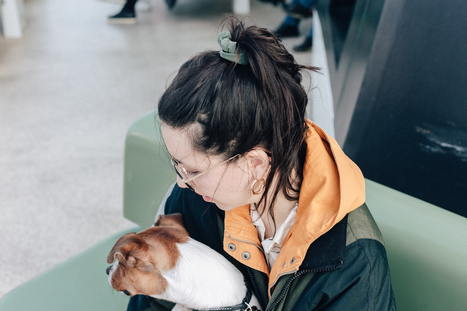




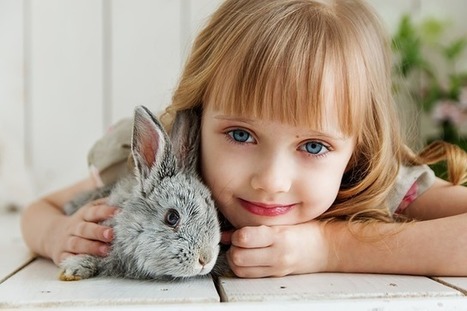

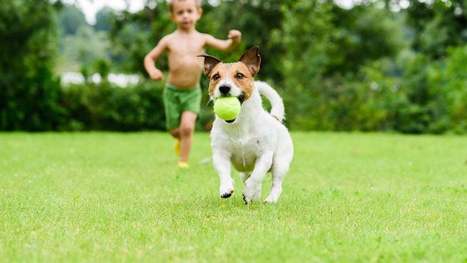
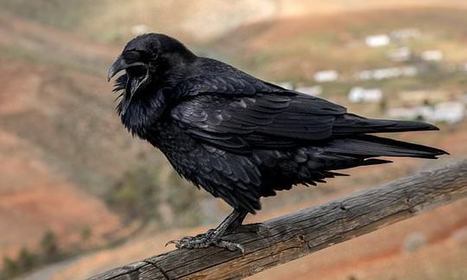




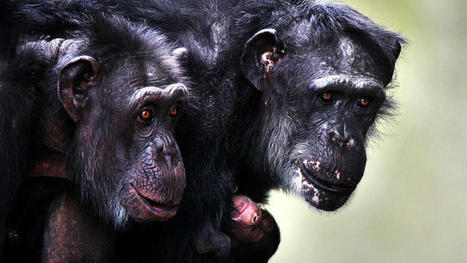
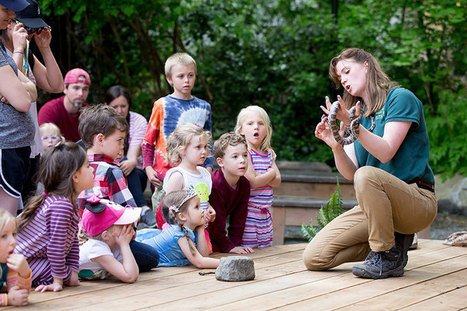




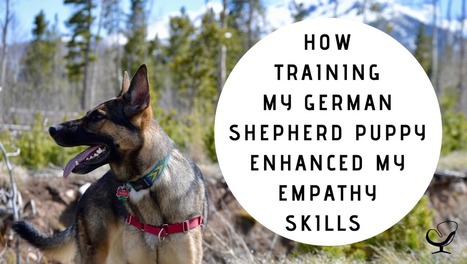

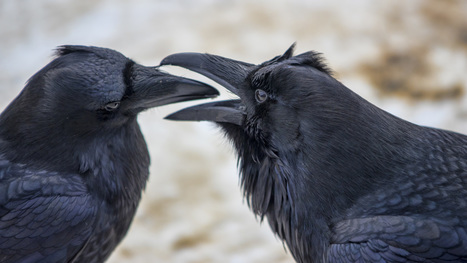

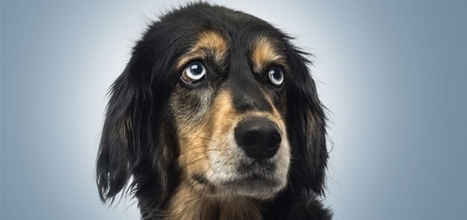



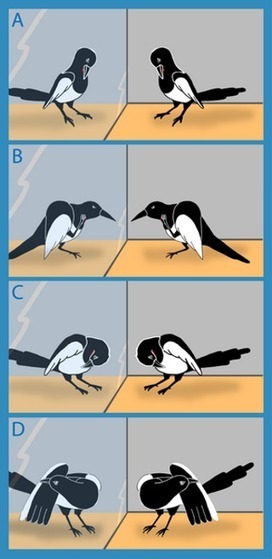





Boston terrier puppies available for good price follow our web site below
https://www.bostonterrierpetshome.com
https://www.bostonterrierpetshome.com
https://www.bostonterrierpetshome.com
https://www.bostonterrierpetshome.com
https://www.bostonterrierpetshome.com
https://www.bostonterrierpetshome.com
https://www.bostonterrierpetshome.com
https://www.bostonterrierpetshome.com
https://www.bostonterrierpetshome.com